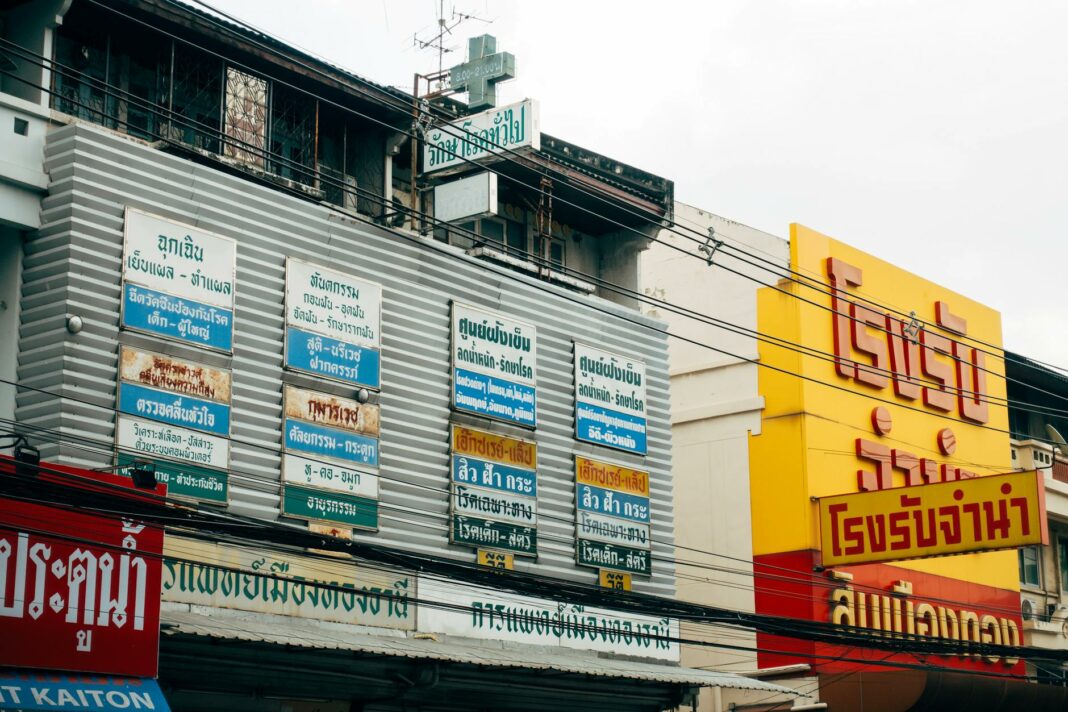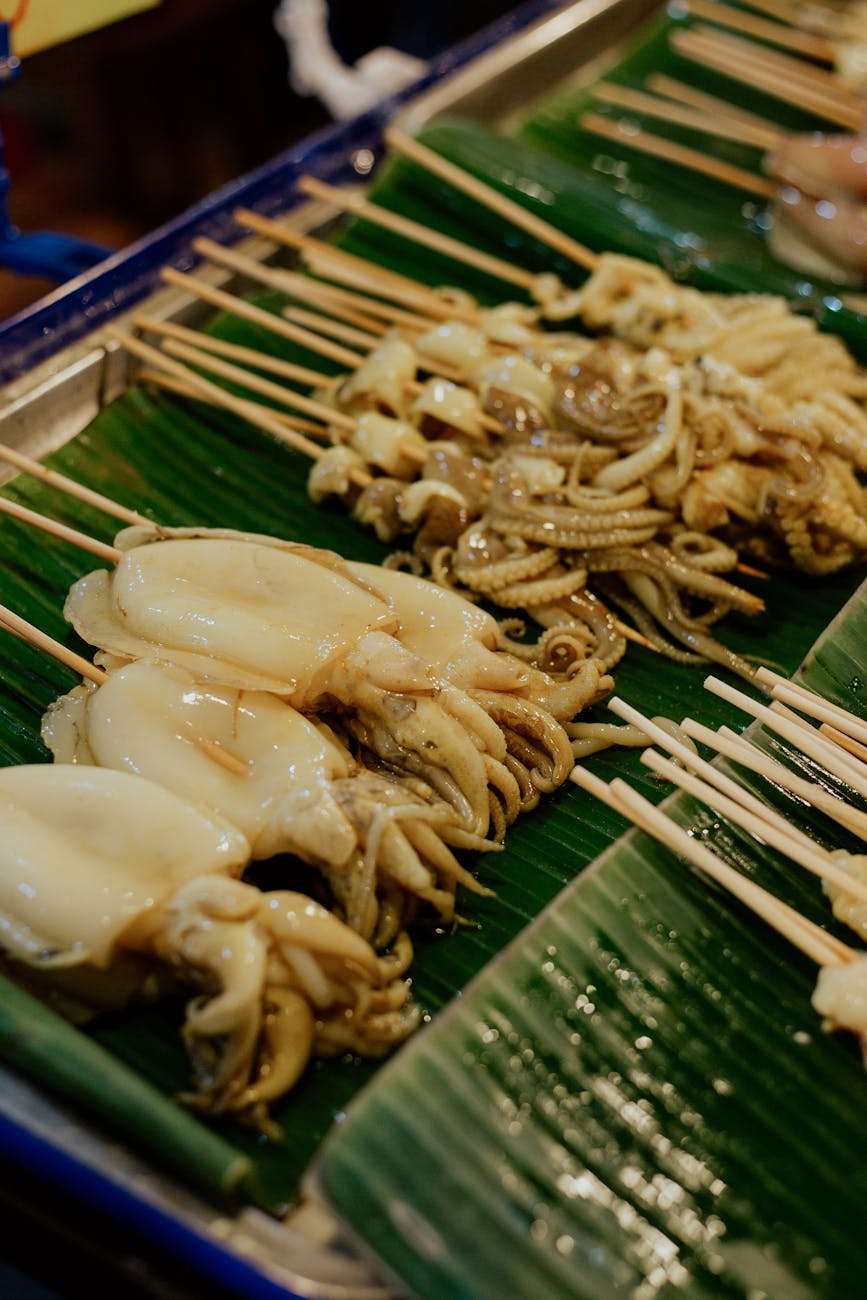Embarking on an Enriching Journey to Thailand
Are you dreaming of an unforgettable getaway? Thailand beckons with its stunning landscapes, rich culture, and vibrant local cuisine. This blog post will explore how indulging in Thailand’s culinary treasures can significantly elevate your eco-tourism experience while also offering unique insights that challenge conventional travel thoughts. From mouthwatering street food to sustainable dining practices, it’s clear that the flavors of Thailand provide more than nourishment; they enhance your connection to the country and its people.
As you traverse through this post, you’ll find invaluable information on must-try dishes, eco-friendly food sources, and how embracing local culinary practices can foster a deeper understanding of the region’s traditions. You will be inspired to consider how your trip can support local communities while being mindful of your environmental impact. Dive into this delectable adventure that intertwines sustainable tourism with the art of Thai cooking.
Table of Contents
- The Allure of Thailand’s Local Cuisine
- What Eco-Tourism Means in Thailand
- Sustainable Practices in Thai Cuisine
- Real-Life Examples of Culinary Eco-Tourism
- How to Integrate Local Cuisine into Your Eco-Tourism Experience
- Elevate your Travel: A Culinary Call to Action
The Allure of Thailand’s Local Cuisine
Diving into Thailand’s local cuisine is more than just a culinary experience; it’s an exploration of culture and heritage. Thai food is globally recognized for its unique blending of flavors, combining sweet, sour, salty, and spicy elements to create a memorable taste sensation. As you stroll through bustling markets or vibrant street stalls, you’ll be captivated by the aromatic scents of fresh herbs, spices, and sizzling dishes. The local food scene is a tapestry of regional specialties that will not only satisfy your palate but also introduce you to the stories and traditions behind each dish.
Imagine savoring a bowl of Tom Yum soup, its spicy and tangy broth warming not just your body but your spirit. Each bite reveals the meticulous care Thai chefs put into their cooking, often using locally sourced ingredients. This commitment to freshness mirrors a broader trend in eco-tourism where exploring the local food culture provides a profound awareness of sustainability. As travelers embrace the flavors of their destinations, they also cultivate a deeper understanding of the agricultural practices that sustain these culinary delights. By doing so, you contribute to the livelihoods of local farmers and small businesses dedicated to preserving Thailand’s rich gastronomic heritage.
What Eco-Tourism Means in Thailand
Thai eco-tourism encompasses much more than just enjoying the natural beauty and diverse ecosystems found throughout the country. As your journey unfolds, you will come to realize that eco-tourism in Thailand integrates conservation efforts, cultural appreciation, and community support. In its essence, it promotes responsible travel practices that minimize environmental impact. Eco-tourism encourages tourists to engage authentically with the environment while supporting local economies, ensuring that your travel experiences have a positive footprint.
By embracing eco-tourism, travelers will find unique opportunities to connect with nature while discovering how local communities sustain themselves. Guided tours of natural reserves, ecologically friendly hotels, and responsible wildlife encounters reflect this duality of honoring both nature and local customs. Thailand offers a multitude of options for eco-conscious travelers, inviting you to be an active participant in conservation efforts while cherishing the beautiful landscapes that serve as a backdrop to your adventures.
Sustainable Practices in Thai Cuisine
Sustainable practices are increasingly becoming the heart of Thai cuisine, emphasizing the importance of farm-to-table concepts. The Thai culinary landscape boasts many restaurants and street food vendors focusing on sourcing local, organic ingredients. This approach minimizes transportation emissions and supports local farmers engaged in responsible agricultural practices. As a traveler, choosing to dine at these establishments not only satisfies your cravings but also fosters sustainable economic growth within the community.
Moreover, engaging in cooking classes that emphasize seasonality and sustainability provides an enriching perspective on Thai food. Imagine learning to prepare traditional dishes using fresh, local produce while gaining insights into the importance of biodiversity in farming. This culinary education amplifies your eco-tourism experience, showcasing how food can bridge communities, cultures, and the environment. By seeking out sustainable eateries, you are directly contributing to the preservation of Thailand’s natural resources, promoting a brighter future for both the environment and local livelihoods.
Real-Life Examples of Culinary Eco-Tourism
Exploring real-life examples of culinary eco-tourism in Thailand reveals a dynamic interplay between culture and sustainability. Consider the success of farm-to-table restaurants in Chiang Mai that highlight local flavors while operating on organic farms. These establishments prioritize seasonal crops, ensuring their menus reflect the natural rhythm of the land. By dining there, you don’t just eat; you savor the essence of Thai traditions and support a movement promoting responsible consumption.
Furthermore, community-based tourism initiatives, like those found in rural villages, offer travelers the chance to partake in family-run cooking experiences. Visitors can participate in harvesting ingredients, preparing traditional dishes, and sharing meals with their hosts. This immersive experience teaches invaluable lessons about local culture while creating meaningful connections with the community. By blending a genuine culinary experience with eco-tourism principles, travelers can participate actively in the preservation of Thailand’s culinary heritage and promote positive change in rural economies.
How to Integrate Local Cuisine into Your Eco-Tourism Experience
Turning a trip into a culinary adventure while prioritizing eco-tourism is easier than you might think. Start by researching local eateries that feature organic produce and sustainable practices. Make it a point to visit farmers’ markets to understand how locals cultivate and harvest their crops. Not only can you witness the dedication of Thai farmers firsthand, but you will also be supporting their efforts while experiencing the freshest ingredients.
Participating in cooking classes and workshops can be transformative, providing insights into the vibrant world of Thai cuisine while ensuring your learning experience resonates with the principles of sustainability. Moreover, consider discussing food and culture with local chefs and families, gaining authentic insights that might not be available in conventional travel itineraries. Engaging with your food experience this way enhances not only your palate but also your connection to Thailand’s cultural tapestry.
Elevate your Travel: A Culinary Call to Action
Travelers can transform their journeys into sustainable culinary explorations by actively choosing to engage with local food culture. Challenge yourself to prioritize meals at restaurants that support sustainable practices, seek out eco-friendly experiences, and immerse yourself in the art of Thai cooking. By doing so, you’re not just tasting Thai cuisine—you’re also embracing eco-tourism in its truest form. This mindful approach to travel allows you to savor every bite while making a positive impact on your surroundings.
Your trip to Thailand can be so much more than a vacation. It’s a chance to foster relationships with local communities and enhance your understanding of sustainable practices. You have the power to make every meal an experience that celebrates the land’s bountiful resources and the resilient spirit of its people. So embark on your culinary adventure and let the flavors of Thailand guide you to new heights of eco-tourism.
Frequently Asked Questions
What are some must-try dishes in Thailand?
Some iconic dishes you should experience include Pad Thai, Tom Yum Goong, Som Tum (green papaya salad), and Massaman Curry. Each dish showcases the unique blend of flavors and ingredients that characterize Thai cuisine.
How can I ensure my dining choices are eco-friendly in Thailand?
Seek out restaurants that focus on organic and local ingredients, ask about their sourcing practices, and consider dining where cooking is part of community engagement. Supporting local markets and food festivals helps boost the economy while indulging in authentic flavors.
Is it necessary to take cooking classes to enjoy Thai cuisine?
While taking cooking classes can enhance your appreciation for Thai cuisine, they are not mandatory. Engaging with local chefs and experiencing street food can be equally enjoyable and insightful, providing a direct connection to culture and traditions.
How does eco-tourism benefit local communities in Thailand?
Eco-tourism promotes sustainable practices that encourage environmental conservation and economic growth. By participating in eco-tourism activities, travelers can help bolster local economies and support small businesses committed to preserving cultural integrity.
What is the best time to visit Thailand for food experiences?
The best time to indulge in food experiences in Thailand is during the dry season, which runs from November to February. This period offers pleasant weather and numerous food festivals showcasing the country’s diverse culinary offerings.
Image Credit: Pexels





